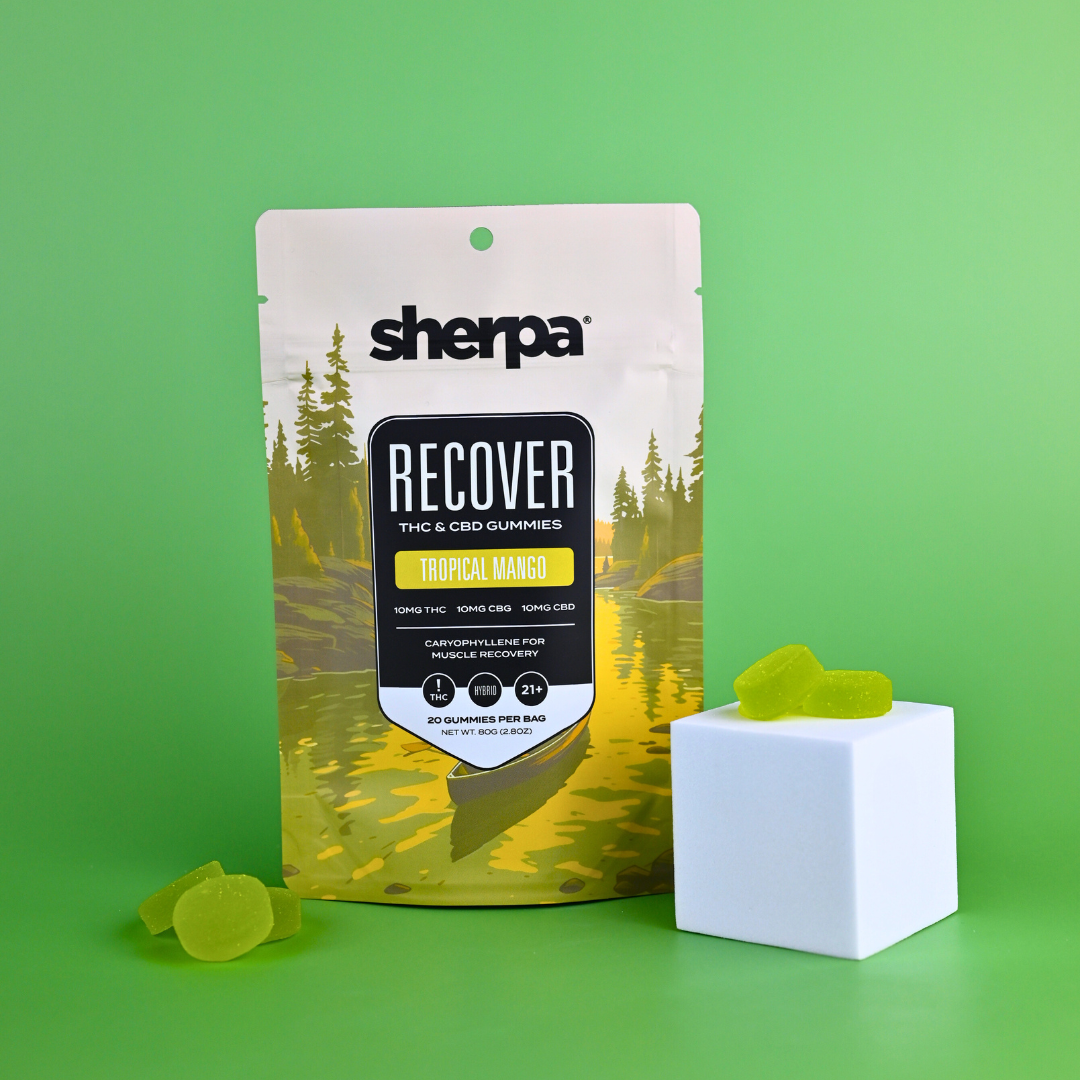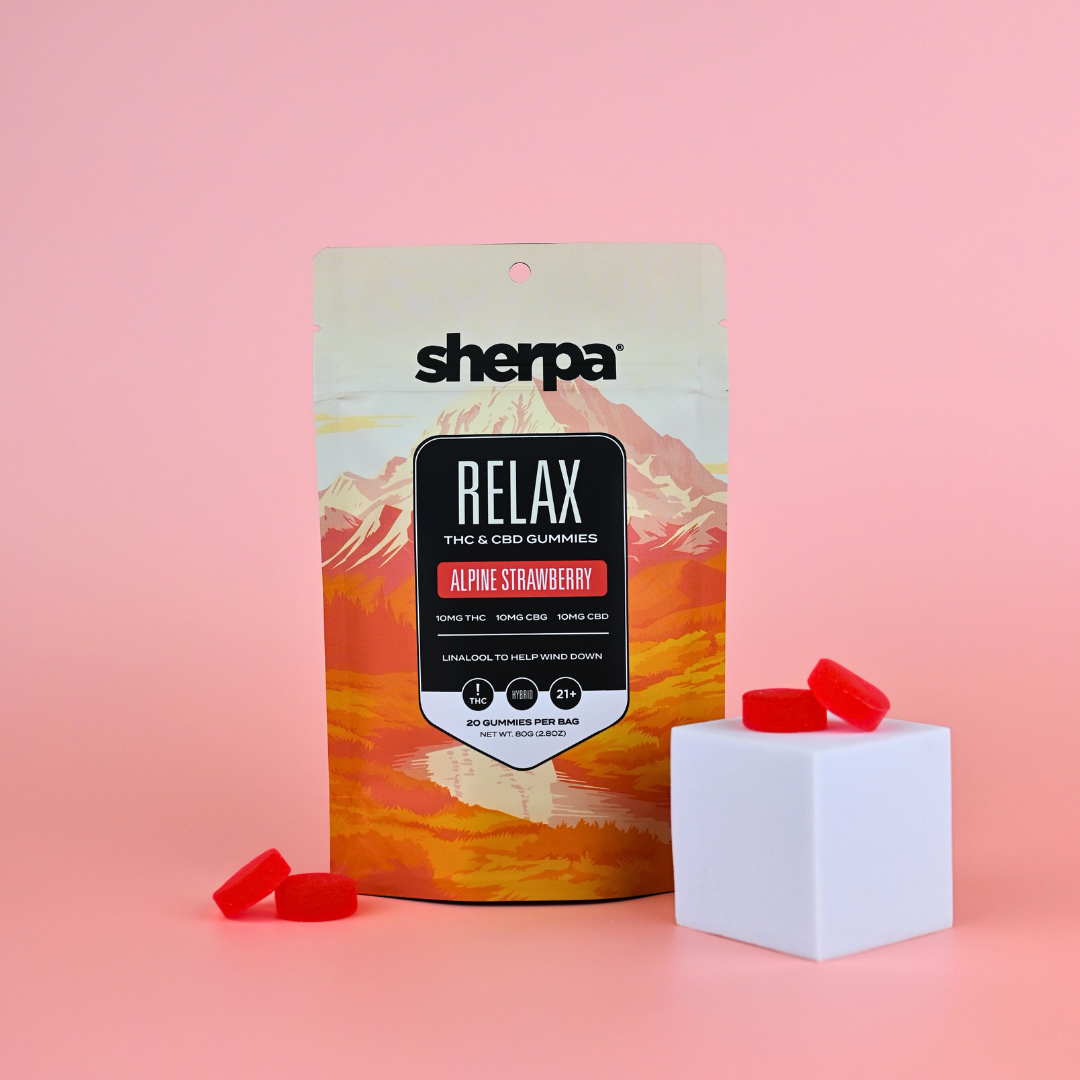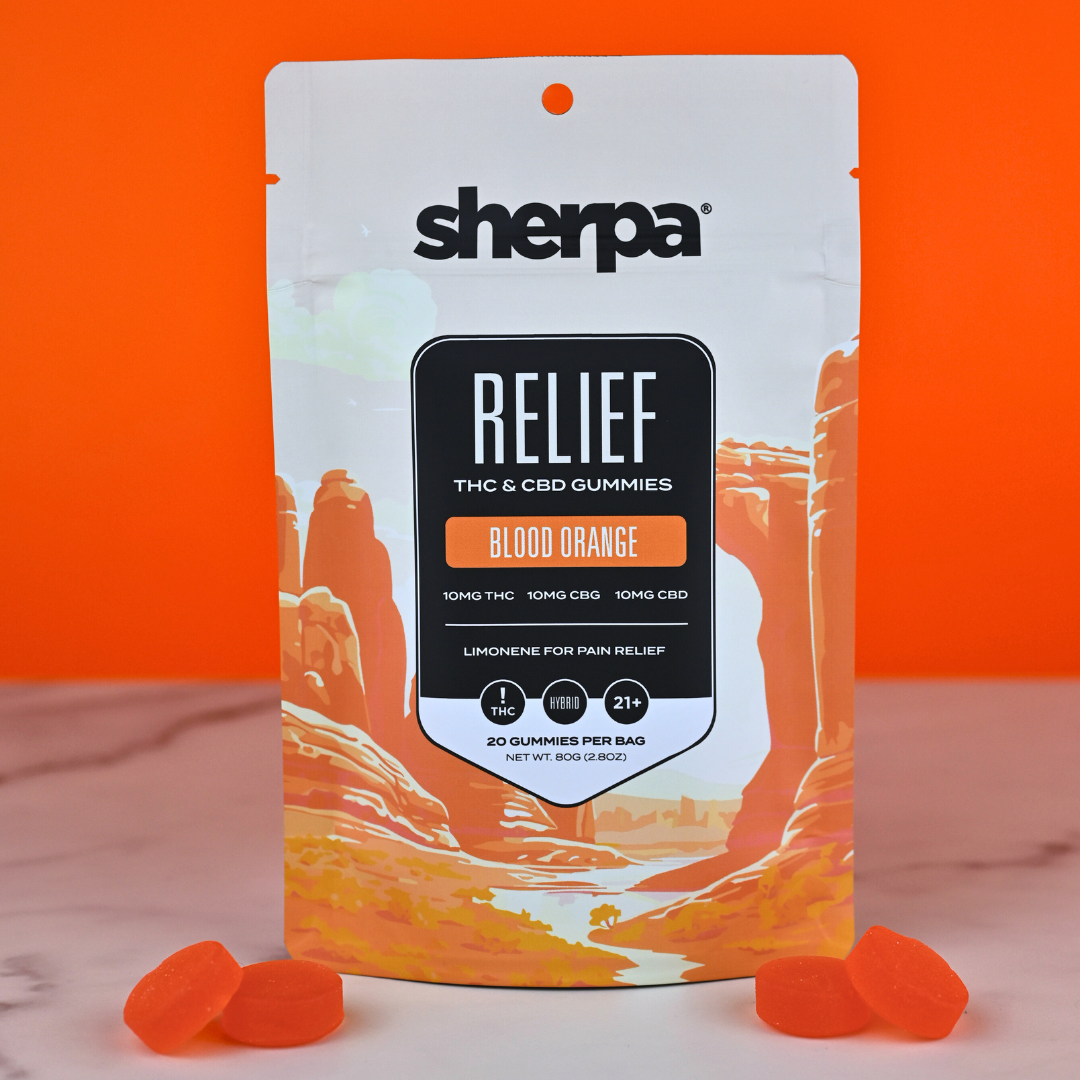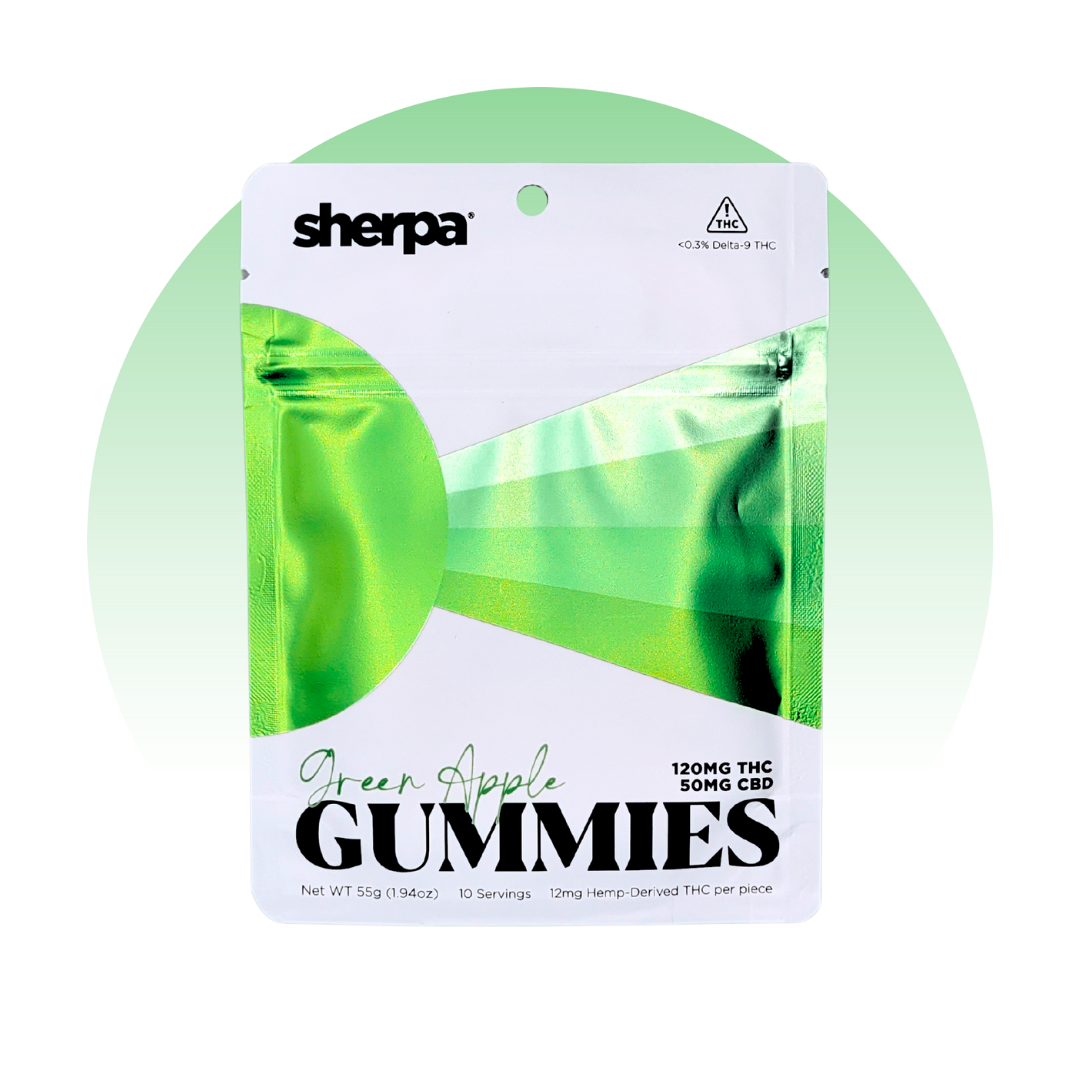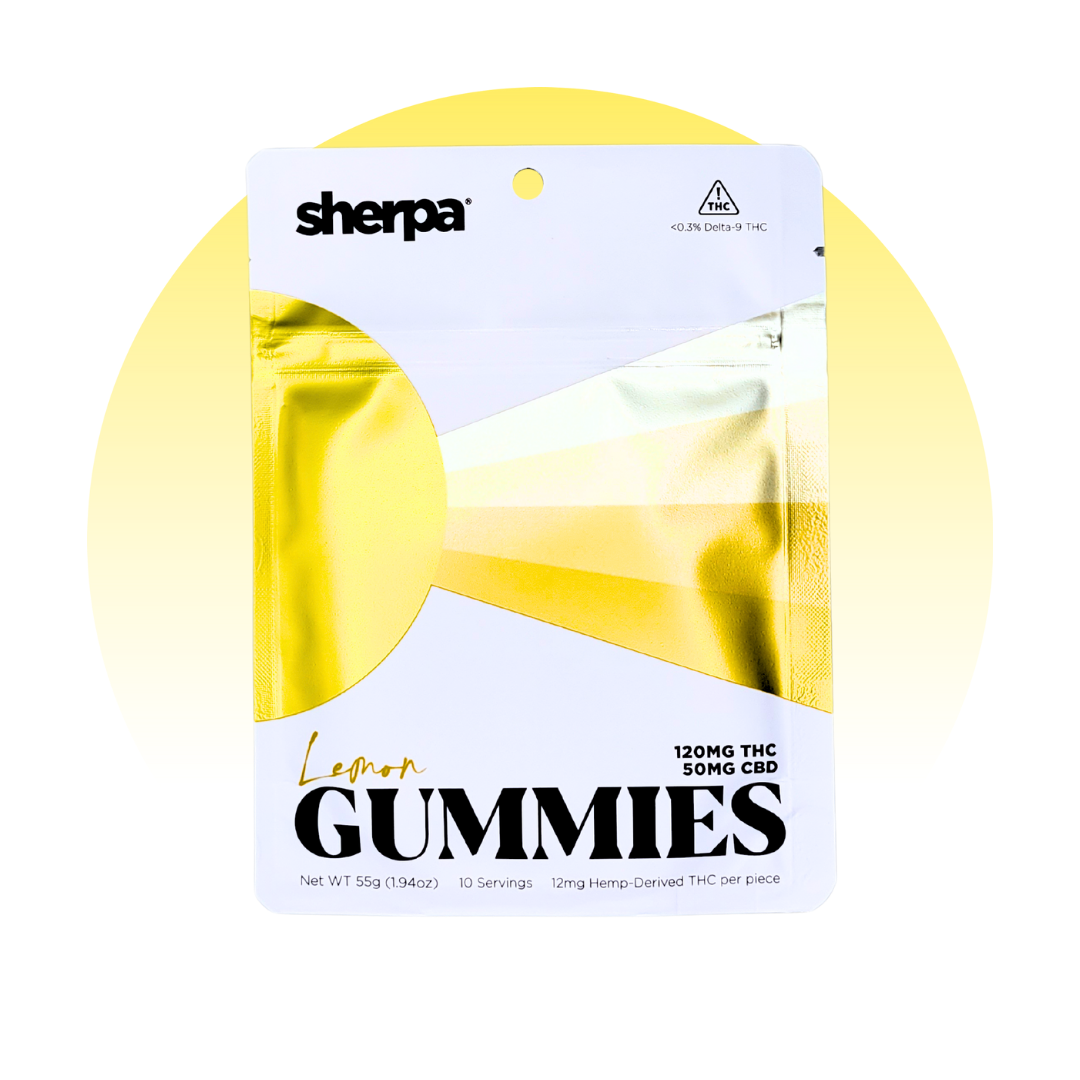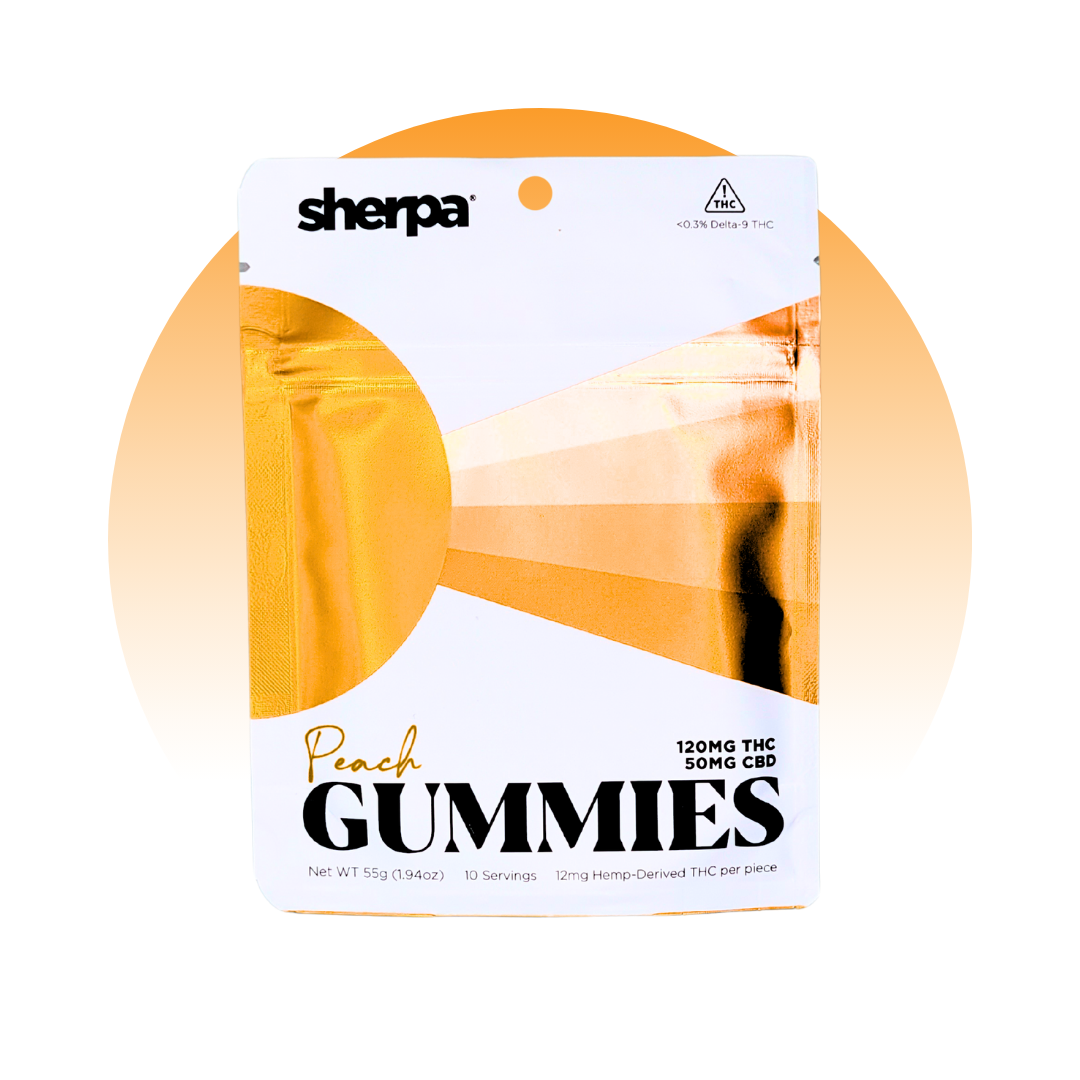
Our Blog
What Are Phytocannabinoids?
What Are Phytocannabinoids?
If you're anything like us, you love getting to know the cannabis plant on a fundamental level. When you consider how many ways it positively impacts our lives, you can really understand the cannabis plant as the manifestation of the intersection of science and magic.
Today we're going to be taking a look at one specific type of compound cannabis brings to the table — Phytocannabinoids. We're going to take a look at what they are and what they do as well as the physiological impacts they have on our lives when we consume this plant — be that through edibles or through more traditional means.
In order to understand phytocannabinoids, we're first going to have to understand cannabinoids themselves as a class of compounds.
What Are Cannabinoids?
If you're a student of cannabis, you've undoubtedly heard of cannabinoids. These are a group of chemical compounds that interact with the body's endocannabinoid system, or ECS for short, which plays a crucial role in regulating various physiological processes. These compounds are primarily found in the cannabis plant, but they can also be produced synthetically or naturally in other plants and even in the human body.
The ECS consists of three main components — endocannabinoids, cannabinoid receptors, and enzymes. Endocannabinoids are naturally occurring compounds in the body that are structurally similar to the cannabinoids found in cannabis. They help maintain homeostasis, or balance, within the body.
The two primary types of cannabinoid receptors are CB1 and CB2. CB1 receptors are predominantly found in the brain and nervous system, while CB2 receptors are primarily located in the immune system and peripheral tissues. When cannabinoids bind to these receptors, they can influence various bodily functions, including appetite, pain sensation, mood, and memory.
Alright. Now that you have a good idea of what cannabinoids are let's take a look at one family of them — the phytocannabinoids.
What Are Phytocannabinoids?
So remember when we said above that cannabinoids don't necessarily have to trace their origins back to the cannabis plant? Some of them naturally occur in your body, some are found in other plants, some have even been made in labs. But when you hear "phytocannabinoids," you know we're talking about the cannabinoids that are naturally occuring in the cannabis plant.
Phytocannabinoids are produced in the glandular structures of the cannabis plant called trichomes. These tiny, hair-like structures are primarily found on the flowers and leaves of the plant and serve to protect it from environmental stressors and pests. The concentration of phytocannabinoids can vary significantly among different cannabis strains, which contributes to the plant's diverse range of effects and uses.
Scientists have identified about 480 different compounds present in the cannabis plant, but, depending on who you ask, only around 100 have been identified as phytocannabinoids. The two most famous of them are ones we're pretty sure you've already heard of. THC and CBD. Let's take an in-depth look at this duo and get a better understanding of their benefits.
What Is THC?
Tetrahydrocannabinol, more commonly known as THC, is the primary psychoactive compound found in the cannabis plant. Out of the scores of cannabinoids discovered, it remains primarily responsible for the "high" that many users experience when consuming cannabis. THC is chemically similar to some of the body's natural endocannabinoids, which allows it to effectively bind to cannabinoid receptors in the brain and body.
When THC is consumed, it binds mainly to the CB1 receptors of your ECS located in the brain and central nervous system. This binding leads to the activation of pathways that can alter neurotransmitter release, ultimately affecting how the brain processes information and experiences sensations. This interaction results in the characteristic effects associated with THC.
Overall, THC is a powerful compound with a range of effects on the body and mind. While it is primarily known for its psychoactive properties, its therapeutic benefits are gaining recognition in the medical community. As research continues, a deeper understanding of THC's effects and potential applications may lead to new treatments and uses, enhancing its role in both recreational and medicinal contexts.
Now let's shift our attention to the second-most well-known phytocannabinoid, CBD.
Examining CBD
Cannabidiol, more commonly known as CBD, is a non-psychoactive compound found in the cannabis plant. Unlike tetrahydrocannabinol (THC), CBD does not produce a "high" and is not associated with the euphoric effects often linked to cannabis.
Like THC, CBD also interacts with the body's ECS. But unlike THC, which primarily binds to the CB1 receptors in the brain, CBD has a more indirect effect. It does not bind strongly to either CB1 or CB2 receptors. Instead, CBD influences the ECS by modulating the activity of these receptors and enhancing the effects of the body's own endocannabinoids. This unique interaction helps promote balance and homeostasis within the body.
CBD is a really versatile compound with a range of potential health benefits, and its non-psychoactive nature makes it an appealing option for people seeking relief from various conditions without the intoxicating effects associated with THC. As research continues to uncover the full spectrum of CBD's benefits, it's likely that it will play an increasingly important role in both wellness and medicine.
So we've touched on some of the benefits of two specific phytocannabinoids, but let's now take a broader look at how these compounds are used for health and wellness.
What Are the Therapeutic Benefits of Phytocannabinoids?
Unlike traditional pharmaceuticals, phytocannabinoids offer a unique approach to health and wellness, working with the body's natural systems to promote balance and homeostasis. The most studied phytocannabinoids, like the two mentioned above, have demonstrated a range of therapeutic applications for these compounds.
Chronic Pain:
One of the most well-known therapeutic benefits of phytocannabinoids is their ability to alleviate chronic pain. Research has shown that cannabinoids can interact with the ECS to modulate pain perception. Like we said above, THC in particular has analgesic properties that can help reduce pain associated with conditions like arthritis, multiple sclerosis, and neuropathic pain. CBD also contributes to pain relief by exhibiting anti-inflammatory effects, making it beneficial for individuals suffering from inflammation-related pain.
Anxiety and Stress:
Another significant therapeutic application of phytocannabinoids is in the management of anxiety and stress. Many individuals report that CBD helps reduce feelings of anxiety and promotes relaxation without the psychoactive effects associated with THC. Studies suggest that CBD may influence serotonin receptors in the brain, which play a crucial role in regulating mood and anxiety. This makes phytocannabinoids a potential alternative for those seeking relief from anxiety disorders or stress-related conditions.
Seizures:
Phytocannabinoids are also being explored for their role in seizure management. CBD in particular has gained attention for its effectiveness in treating certain forms of epilepsy, such as Dravet syndrome and Lennox-Gastaut syndrome. Clinical trials have demonstrated that CBD can significantly reduce the frequency and severity of seizures, leading to its approval as a treatment option in various countries. This has opened new avenues for patients who may not respond well to traditional antiepileptic medications.
Sleep:
Additionally, phytocannabinoids have shown promise in promoting better sleep quality. Many people use cannabis or CBD products to help with insomnia and other sleep disorders. THC can induce drowsiness and help individuals fall asleep more quickly, while CBD may improve sleep quality and reduce disturbances during the night. This dual action can be particularly beneficial for those struggling with sleep-related issues, providing a natural alternative to conventional sleep aids.
Anti-Inflammatory Actions:
The anti-inflammatory properties of phytocannabinoids are another area of interest in therapeutic applications. Inflammation is a common underlying factor in many chronic conditions, such as heart disease, diabetes, and autoimmune disorders. Phytocannabinoids like CBD have been shown to reduce inflammation by interacting with the ECS and modulating immune responses. This makes them potential candidates for treating inflammatory diseases and conditions, providing an alternative approach to managing inflammation without the side effects of traditional anti-inflammatory medications.
Neuroprotective Effects:
Phytocannabinoids have been investigated for their neuroprotective effects. Research indicates that certain cannabinoids may help protect brain cells from damage and support cognitive function. This has implications for neurodegenerative diseases such as Alzheimer's and Parkinson's disease, where maintaining brain health is crucial.
The therapeutic benefits of phytocannabinoids are diverse and continue to be explored through ongoing research. These compounds offer promising alternatives to conventional treatments, and as more studies emerge, the understanding of how phytocannabinoids can enhance health and well-being will expand, potentially leading to new therapeutic applications and products. For individuals seeking natural and effective options for managing their health conditions, phytocannabinoids represent a fascinating area of exploration and hope.
That said, there are some drawbacks to keep in mind.
The Thorny Issues of Phytocannabinoids
As the use of phytocannabinoids, particularly CBD and THC, gains popularity for both recreational and medicinal purposes, regulatory issues and safety concerns have become important topics of discussion. Understanding these factors is crucial for consumers, healthcare providers, and policymakers as they navigate the evolving landscape of cannabinoid products.
Regulatory Issues
One of the primary challenges surrounding phytocannabinoids is their legal status, which varies significantly from one region to another. In some countries and states, cannabis and its derivatives are fully legalized for both recreational and medicinal use. In others, cannabis remains strictly prohibited, and regulations can be complex and confusing. This patchwork of laws complicates access to phytocannabinoid products and hinders research efforts aimed at understanding their effects and benefits.
In the United States, the 2018 Farm Bill legalized hemp-derived CBD containing less than 0.3% THC at the federal level. However, many states have their own regulations that may differ from federal law. Some states allow the sale of CBD in various forms, while others impose restrictions or require specific licensing. The lack of uniformity in regulations can create confusion for consumers and businesses alike.
The Food and Drug Administration (FDA) in the U.S. is also of little help. The FDA has not yet established comprehensive regulations for CBD products marketed as dietary supplements or food additives. While the FDA has approved Epidiolex, a CBD-based medication for epilepsy, the agency continues to evaluate the safety and efficacy of other CBD products. This regulatory uncertainty raises concerns about the quality, labeling, and marketing of phytocannabinoid products available to consumers.
Safety Concerns
Safety is another critical issue when it comes to phytocannabinoids. While many users report positive effects, there are potential side effects and interactions that must be considered. Common side effects of THC include dizziness, dry mouth, increased heart rate, and anxiety, particularly in higher doses. CBD is generally well-tolerated but can cause side effects like fatigue, diarrhea, and changes in appetite. These effects can vary depending on individual tolerance, dosage, and method of consumption.
The interaction of phytocannabinoids with other medications also poses some safety concerns. Both CBD and THC can affect how the liver metabolizes certain drugs, potentially leading to increased side effects or reduced efficacy of those medications. For individuals taking any medications, it is really important to consult a healthcare provider before using phytocannabinoid products like Sherpa's.
And speaking of our products, quality control is another significant safety concern in the phytocannabinoid market. Due to the lack of stringent regulations, many companies do not undergo rigorous testing for purity, potency, and contaminants. We do, of course, but since we're not forced to, many don't. That means some products may contain harmful substances, such as pesticides, heavy metals, or residual solvents from the extraction process. It is always best to use a brand you trust and to do your own research.
Finally, the misinformation surrounding phytocannabinoids can lead to misuse or unrealistic expectations. Some consumers may assume that because phytocannabinoids are natural, they are entirely safe and free from side effects. Education about the appropriate use and potential risks of phytocannabinoids is essential for informed decision-making.
Tips for Consuming Cannabis Safely
As interest in phytocannabinoids like CBD and THC continues to grow, people need to be taught to approach their use with care and informed decision-making. Whether you're considering phytocannabinoids for medicinal or recreational purposes, following these guidelines can help ensure a safe and positive experience. Here are some practical tips for consuming phytocannabinoids safely:
Consult with a Healthcare Professional:
Like we said above, before starting any new supplement or medication, consult with a healthcare provider. This is especially important if you are taking other medications or have underlying health conditions. A professional can help you understand potential interactions and guide you in finding the right product and dosage for your needs.
Start with a Low Dose:
If you're new to phytocannabinoids, you should really start with a low dose and gradually increase it as needed. This approach allows you to gauge how your body reacts to the compound without overwhelming your system. For THC, beginning with a dosage of 5 to 10 mg can be a good starting point.
Choose Quality Products:
The quality of phytocannabinoid products can vary widely. Look for products from reputable brands like Sherpa that provide third-party lab testing results. These tests should confirm the potency of the active ingredients and ensure the absence of harmful contaminants, such as pesticides, heavy metals, or residual solvents. Transparent labeling and certifications can provide additional assurance of product quality.
Monitor Your Reactions:
Pay close attention to how your body responds after consuming phytocannabinoids. Keep track of any positive effects as well as any adverse reactions. If you experience negative side effects, consider adjusting your dosage or trying a different product. Not everyone reacts the same way to cannabinoids, so finding what works best for you may take some time.
Avoid Mixing with Alcohol or Other Substances:
Combining phytocannabinoids with alcohol or other psychoactive substances can lead to unpredictable effects and increase the risk of negative experiences. It's best to consume cannabinoids in a controlled environment, especially if you are trying them for the first time.
Store Products Properly:
To maintain the potency and effectiveness of your cannabis products, store them in a cool, dark place away from direct sunlight and moisture. Proper storage can help prevent degradation and extend the shelf life of the products. You also want to make sure you keep them in a place where kids and pets can't find them.
Educate Yourself:
Just like you're doing right now, it's important to stay informed about the cannabis industry and ongoing research. Getting a better understanding of how cannabinoids work and their potential benefits and risks will empower you to make informed decisions about your consumption.
Ready to Explore the World of Cannabis? Let Sherpa Be Your Guide
Feel like you've had a bit of an education? Good! That's what we're here for. We want you to have the most up-to-date information possible to make good decisions about your health and lifestyle. If you're interested in introducing phytocannabinoids to it, you're in luck.
We'd suggest starting with our low-dose THC products. If you're brand new to cannabis or still trying to figure things out, you don't want to overwhelm yourself with too much too fast. A good 2mg pill to 12mg gummy should be plenty while you're still testing the waters.
When you're ready to move on, our higher-dose THC products might be more appropriate. Our 25mg gummies are a great, well-rounded option, as are our 50mg Brownie Bites. Great for sharing with friends or having an elevated afternoon all to yourself!
Regardless of the product you choose, make sure you're enjoying it responsibly. There's no need to overdo it and there's no need to get in a car and go anywhere. Just let the experience wash over you and feel the healing benefits — physical, mental and spiritual.
